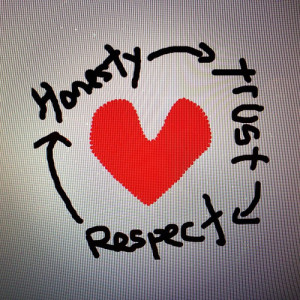Sermon – November 16th 2014
By Roland Legge
Judges 4
1 Thessalonians 5:1-11
Matthew 25:14-30
What can we learn from the Parable of the Talents? Is this justification for the Capitalist System? No I don’t think so!
Jesus is saying to his followers that transforming the world is dangerous business. This is a Parable that encourages us to take risks. This is a Parable that calls upon us to act with gutsy love in the world. Jesus has no doubt that the world can become a more caring and just place. Jesus says “Yes we can”!
One simple thing we Christians can do is to tell the truth. But why is it so difficult to live this out? Yet I suspect most of us, if not all of us have lied some time in our lives. Sometimes we do it to protect ourselves. Sometimes we do it to protect those we love. I am not saying we should never say a white lie sometimes if we determine it to be the most compassionate and just thing to do. But I believe that in most circumstances it is best to tell the truth.
But before we promise to do this with those we interact with whether they be family, friend or stranger we need to stop lying to ourselves. I think we hurt ourselves when we lie to ourselves. We lie to ourselves in many ways. I can think of a time in my first marriage when I thought I could fix my marriage with Yvonne. This was a lie. I lie to myself every time I don’t think I am worthy of other people’s love. I lie to myself every time I say something is important to me and then don’t follow through. I lie to myself every time I say I am fine when I am not. How do you lie to yourself?
There is an excellent book I ready many years ago called People of the Lie by Scott Peck. He argues that the more we lie to ourselves and others prevents us from making wiser choices. He says in his book:
“The less clearly we see the reality of the world – the more our minds are befuddled by falsehoods, misperceptions, and illusions – the less able we will be to determine correct courses of action and make right decisions. Our view of reality is like a map with which to negotiate the terrain of life. If the map is true and accurate, we will generally know where we are, and if we have decided where we want to go, we will generally know how to get there. If the map is false and inaccurate, we generally will be lost.”
So many of the conflicts in the world today happen because of lies, poor communication and fear.
Yet there is a time to tell the truth. Timing can be everything. Thankfully doctors are improving on their bedside manners. It isn’t helpful when a doctor just blurts out that you have cancer. It makes a difference when he or she sits down and takes some time with the patient to pass on the bad news and stay with them long enough to help them to begin to process their grieving.
I want the truth from each of you as to how I am doing. What you like. What you don’t like. However, I am much more open to your points of view if you are polite with me and use the “I” statements. Do you get annoyed with people who say nice things to you to appease you when it isn’t true? I do. But I also get upset if people are really rude to me. Telling the truth does not give us permission to abuse people.
Any relationship we have calls on us to be truthful. Honesty can lead to deep and healthy relationships. For example, if we are honest to ourselves and each other we can communicate better with each other. Being able to express our own needs and ask for what we need from those we love helps us to have more fulfilling relationships.
Here is a story from William Willimon that tells of an experience that Tony Campolo experienced that shows how speaking the truth can lead to rich relationships.
Tony Campolo told of a time his mother made him go to a funeral to show his respect for the deceased, Mr. Kilpatrick. He drove to the funeral home, entered the chapel, and bowed his head. When he looked around, he noticed he was the only one there, and when he peered into the casket, he did not see Mr. Kilpatrick. He had gone to the wrong funeral! Campolo was about to leave when an elderly woman clutched his arm and pleaded, “You were his friend, weren’t you?” Not knowing what to do, he lied and said, “Yeah, he was a good man. Everybody loved him.” After the funeral, Campolo and the elderly woman went to the cemetery in a limousine. The casket was lowered into the grave, and both tossed a flower on it.
On the way back to the funeral home, Campolo confessed the truth. “Ms. King, there’s something I’ve got to tell you. I want to be your friend, and we can’t have a friendship unless I tell you the truth. I’m afraid I have to tell you that I didn’t really know your husband. I came to his funeral by accident.”
She squeezed his hand and said, “You’ll never, ever, ever know how much you being here with me today meant.”
I don’t know whether Campolo and Ms. King became friends; I only know they could not have become genuine friends without Campolo’s honesty.
http://www.logosproductions.com/content/november-16-2014-stewards-truth
Think for a moment, how are you at speaking the truth as you see it. How good are you at being honest with yourself? Remember it is hard to be honest with others if we cannot be with honest with ourselves.
Are we honest with each other in this congregation of ours? Can we be both honest and respectful of each other? I hope that both you and I can be honest with each other. I hope we can learn from each other. I hope we have the courage and patience to work out win win solutions in all the challenges we face in this congregation.
Jesus reminds us in today’s Parable that we are called to live with reckless love. I pray that each of us in all our relationships can find hope, compassion and reconciliation in open and honest sharing with the people we interact with each day. This is the way to the Kindom of God. Thanks be to God.


